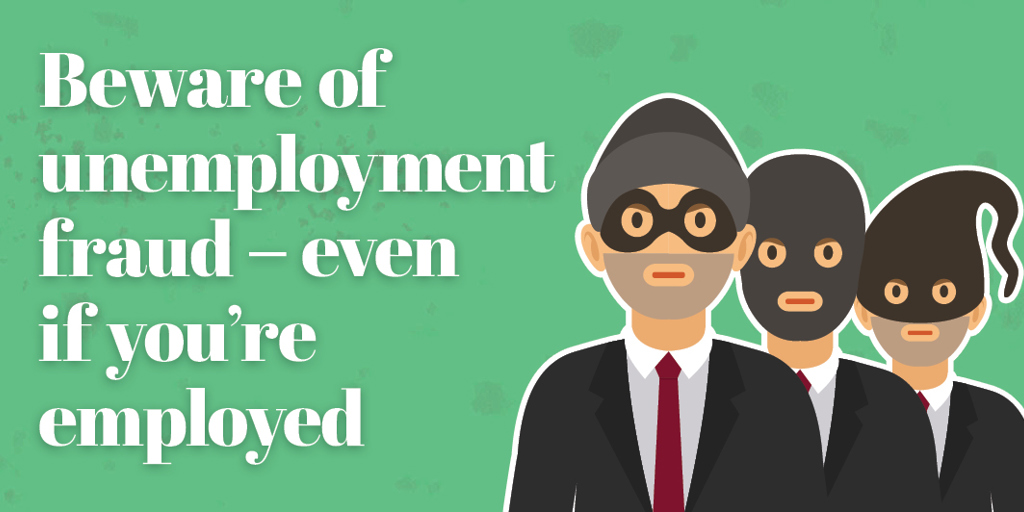


Beware of unemployment fraud — even if you’re employed
Scammers have long known how to use stolen identities to commit fraud, for instance, unemployment fraud.
Unemployment fraud is more prevalent than ever, as federal and state agencies have been providing an unprecedented amount of unemployment assistance to individuals impacted by the coronavirus crisis.
In fact, over $63 billion has been improperly paid out through fraud or errors according to the U.S. Department of Labor’s Office of the Inspector General; the Federal Trade Commission (FTC) estimates it is affecting “tens of thousands of people.”
Unfortunately, most people whose identities are stolen by others to claim their benefits usually don’t discover it until tax time. And surprisingly, you don’t even have to be unemployed to fall victim to unemployment fraud.
Rest assured, if your unemployment benefits are stolen, you will not be held liable following a fraud investigation by your state. But it’s not a speedy process.
And if you are employed, the good news is that your unemployment benefits won’t vanish should you need them in the future. Yet, you’ll probably have to go through a process of clearing your name of any fraud.
So, if you receive an inaccurate 1099-G form (a tax form that reports your unemployment compensation for the year), don’t ignore it — report this suspected fraud immediately to your state unemployment agency so they can correct your income with the IRS and prevent any issues with your taxes.
Do not wait for a revised 1099-G form to file your taxes. Per the IRS, you may proceed with filing your taxes, reporting only your true income and not fraudulent income reported in your name. You do not need to complete the additional form normally required by the IRS for reporting identity theft.
Ray Wills is the security officer at F&M Trust
Recent Articles
Join our e-newsletter
Sign up for our e-newsletter to get new content each month.






















